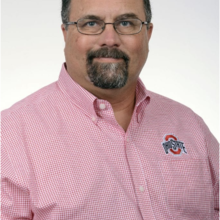IAWC M6 Social Support Networks and Wellness Counseling
Build stronger relationships and enhance wellness through effective social support networks. Discover strategies to foster community and improve counseling outcomes.
Course Overview
Handout M6 Social Support Networks
IAWC M6 Social Networks Video
Required Reading
Required Convoy Model of Social Networks
Research on Importance of Social Support
Social Networks and Health - Optional
M6 ECO MAP Activity
M6 References Social Wellness
07 M6 Quiz
08 M3 Module Evaluation

Recorded Program
Introductory
View the entire recording.
Read both of the attached journal articles related to Wellness Counseling.
Complete the post-test with a passing grade of at least 80%
Complete the course evaluation

Ohio CSWMFT Approval
This training is approved for counselor, social work, and marriage and family therapy continuing education. In addition, it is approved by the Ohio Chemical Dependency Board for chemical dependency continuing education. Check CE Broker for detailed breakdown of CE types (provider number 50-24074).
AWSB Approval
NA- This course is not eligible for credit through the ASWB.
NBCC Approval
Mindfully has been approved by NBCC as an Approved Continuing Education Provider, ACEP No. 7322. Programs that do not qualify for NBCC credit are clearly identified. Mindfully is solely responsible for all aspects of the programs.
Individuals with comments/questions/concerns can contact Mindfully Academy via the information provided below:
513-939-0300
Charles Potter (Program Coordinator) [email protected]
Antonucci, T. C. (2010). The handbook of Life-Span development. Wiley. https://doi.org/10.1002/9780470880166.hlsd002012
Antonucci, T. C., & Akiyama, H. (1987). Social networks in adult life and a preliminary examination of the convoy model. Journal of Gerontology, 42(5), 519–527. https://doiorg.proxy.lib.ohio-state.edu/10.1093/geronj/42.5.519
Cacioppo, J. T., & Cacioppo, S. (2020). The impact of social isolation on health and wellbeing. Perspectives on Psychological Science, 15(3), 544-557. https://doi.org/10.1146/annurev-soc-090320-092412
Haslam, S. A., Jetten, J., & Cruwys, T. (2020). The new psychology of health: Unlocking the social cure. Routledge.
Holt-Lunstad, J. (2010). Social connection and public health: An integration framework. Journal of Health and Social Behavior, 51(5), 519–527. https://doi.org/10.1177/00221465211032824
Smith, K. P., & Christakis, N. A. (2021). Social networks and health: A review of recent findings. Annual Review of Sociology, 47, 243-264. https://doi.org/10.1146/annurevpublhealth-040119-094017
Umberson, D., & Karas Montez, J. (2022). Social relationships and health: A decade of progress and challenges. Journal of Health and Social Behavior, 63(1), 1-19. https://doi.org/10.1177/1745691619896020
Williams, D. R., & Mohammed, S. A. (2020). Racism and health: Evidence and needed research. Annual Review of Public Health, 41, 105-125.